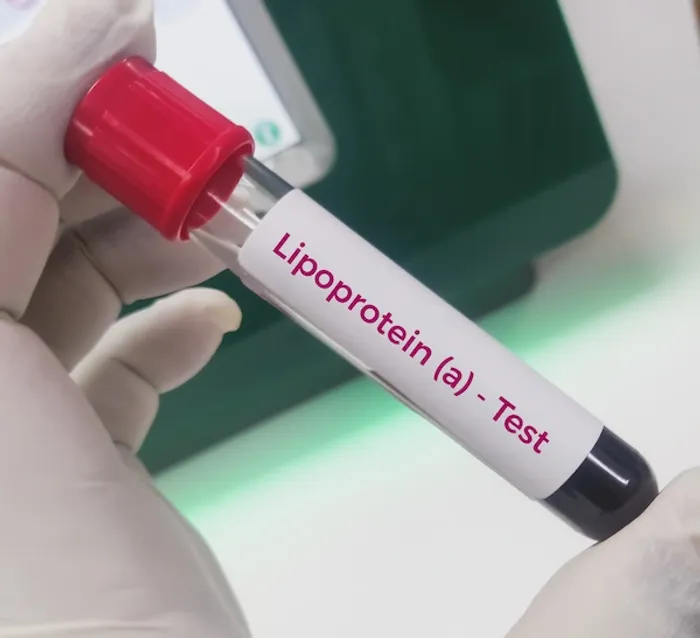Lipoprotein A Test: Understanding Your Normal Range and Results
Learn about the Lipoprotein A (Lp(a)) test, its normal range, and what your results mean for heart health. Understand how to interpret and manage your levels.

Written by Dr. M L Ezhilarasan
Reviewed by Dr. Rohinipriyanka Pondugula MBBS
Last updated on 9th Sep, 2025

Introduction
Have you ever received cholesterol test results that seemed perfect, yet still worry about your heart health? There's a crucial, often overlooked factor that could hold the answer: Lipoprotein A, or Lp(a). Dubbed a "hidden" heart risk factor, high Lp(a) levels can significantly increase your risk for heart disease and stroke, even if your LDL ("bad") cholesterol is normal. This article serves as your comprehensive guide to the Lipoprotein A test normal range. We'll break down what Lp(a) is, why this specific test is vital, how to interpret your results within the standard range, and what steps you can take if your levels are elevated. Understanding this test can be a powerful step in proactively managing your long-term cardiovascular health.
Why is the Lp(a) Test Important? The Hidden Heart Risk Factor
Unlike LDL cholesterol, which can be significantly influenced by diet and exercise, Lp(a) is primarily genetically determined. This means your levels are largely set from birth and remain relatively stable throughout your life. Lp(a) is a type of lipoprotein that carries cholesterol in the blood. It is particularly dangerous because it has a sticky quality, promoting plaque buildup (atherosclerosis) and increasing the risk of blood clots.
A one-time Lp(a) blood test is often recommended for individuals with a personal or family history of premature heart disease, especially if their standard cholesterol panels are normal. It helps identify a major inherited risk factor that might otherwise go unnoticed, allowing for a more aggressive and targeted approach to managing all other controllable risk factors.
Consult a Cardiologist for the best advice
Lipoprotein A Test Normal Range: What the Numbers Mean
Interpreting your Lp(a) test results can be confusing because they can be reported in two different units. It's crucial to know which one your lab is using.
Unit Measurements: mg/dL vs. nmol/L
- Lp(a) is measured either in milligrams per decilitre (mg/dL) or nanomoles per litre (nmol/L). The nmol/L measurement is considered more accurate because it directly measures the number of Lp(a) particles, which is what truly correlates with cardiovascular risk. Always check your report for the unit of measurement.
Lp(a) Normal Range Table
There is some debate among medical societies, but general guidelines are as follows:
Table: General guidelines for interpreting Lp(a) test results. Always follow your doctor's interpretation.
What is Considered a High Lp(a) Level?
- Levels at or above 50 mg/dL or 125 nmol/L are generally considered high and are associated with a significantly increased risk of cardiovascular events. The risk is progressive, meaning the higher the level, the greater the risk. It's estimated that about 1 in 5 people globally have high Lp(a) levels.
What Causes High Lipoprotein A Levels?
The causes of high Lipoprotein A levels include:
The Primary Cause: Genetics
- High Lp(a) is almost exclusively an inherited condition. The LPA gene dictates how much Lp(a) your liver produces. You inherit one gene from each parent, and certain variations lead to higher production. This is why a family history of heart disease is a key indicator for getting tested.
Other Contributing Factors
- While genetics are the main driver, some conditions can modestly influence Lp(a) levels. These include kidney disease (particularly end-stage renal failure), an underactive thyroid (hypothyroidism), and menopause. However, the impact of these factors is small compared to your genetic makeup.
Symptoms and Risks of High Lp(a)
Understanding the symptoms and risks helps you take timely action to protect your cardiovascular system.
The Silent Nature of High Lp(a)
- A dangerous lipoprotein A level has no symptoms. You cannot feel it. This is why it's called a silent risk factor. The first sign of high Lp(a) is often a sudden cardiac event, like a heart attack or stroke, occurring at a relatively young age (under 55 for men, under 65 for women).
Associated Health Risks
Elevated Lp(a) contributes to a triple threat:
1. Atherosclerosis: It deposits cholesterol in artery walls, building plaque.
2. Inflammation: It promotes inflammation within the arteries, destabilizing plaque.
3. Blood Clots: It interferes with the body's ability to break down clots, increasing the risk of blockages.
This combination significantly raises the risk of coronary artery disease, heart attack, stroke, and aortic stenosis.
How to Get Tested: The Lp(a) Blood Test Process
The Lp(a) test is a simple blood draw, similar to a standard cholesterol panel. A key point of confusion is Lp(a) blood test fasting. Unlike tests for LDL or triglycerides, Lp(a) levels are not affected by recent food intake. You do not need to fast before an Lp(a) test. It can be accurately measured at any time of day. If you are getting a full lipid panel that includes Lp(a), your doctor may still ask you to fast for the other components. For convenience, Apollo24|7 offers a home collection for tests like the Lp(a) test, making it easy to check your levels from home.
Get Your Health Assessed
What to Do If Your Lp(a) is High: Management Strategies
Currently, there are no medications specifically approved to dramatically lower Lp(a) levels. However, finding out you have high Lp(a) is not a reason for despair; it's a reason for empowered action. The goal is to aggressively manage all other risk factors.
Lifestyle Modifications for Heart Health
- While lifestyle changes have a minimal direct effect on Lp(a) itself, they are critical for overall cardiovascular protection. This includes a heart-healthy diet (Mediterranean diet), regular aerobic exercise, maintaining a healthy weight, and avoiding smoking.
Managing Other Cholesterol and Risk Factors
- This is the most important step. If your Lp(a) is high, doctors will aim to keep your LDL cholesterol very low, often using high-intensity statins or other medications like PCSK9 inhibitors. Tight control of blood pressure and blood sugar is also paramount.
Emerging Treatments and Therapies
- The good news is that the medical community recognizes the threat of Lp(a). New treatments for high lipoprotein a, such as antisense oligonucleotides and RNA-based therapies, are in advanced clinical trials. These drugs show promise in directly and significantly reducing Lp(a) levels by up to 90%, offering hope for future management.
Conclusion: Taking Control of Your Heart Health
Discovering your Lipoprotein A test normal range is more than just reading a number on a page; it's about gaining a deeper understanding of your unique cardiovascular risk profile. While a high result may feel alarming, it provides invaluable knowledge. It transforms you from a passive recipient of health information into an active participant in your care. This knowledge allows you and your doctor to create a personalized, proactive plan to protect your heart by focusing on the risk factors you can control, such as LDL cholesterol, blood pressure, and lifestyle. If you have a family history of heart disease, don't wait. Consult a doctor online with Apollo24|7 to discuss whether an Lp(a) test is right for you. Taking this step today could be one of the most important decisions you make for your long-term health.
Consult a Cardiologist for the best advice
Consult a Cardiologist for the best advice
Dr. Sibashankar Kar
Cardiologist
10 Years • MBBS, DNB
Bhubaneswar
Hi-Tech Medical College & Hospital, Bhubaneswar

Dr. Pinaki Nath
Cardiologist
8 Years • MBBS, MD General Medicine, DM Cardiology
Barasat
Diab-Eat-Ease, Barasat

Dr. Haider Shaik.
Cardiologist
5 Years • MBBS, MD (Pulmonology) DrNB (Cardiology)
Guntur
Kalam chest and multi-speciality clinic, Guntur
Dr. Dixit Garg
Cardiologist
10 Years • MBBS , DNB (General medicine) , DNB (cardiology)
Gurugram
Smiles & Hearts, Gurugram

Dr. Mangesh Danej
Cardiologist
8 Years • MBBS, MD (General Medicine), DNB (Cardiology)
Pune
Dr Danej clinic, Pune
(375+ Patients)
Consult a Cardiologist for the best advice
Dr. Sibashankar Kar
Cardiologist
10 Years • MBBS, DNB
Bhubaneswar
Hi-Tech Medical College & Hospital, Bhubaneswar

Dr. Pinaki Nath
Cardiologist
8 Years • MBBS, MD General Medicine, DM Cardiology
Barasat
Diab-Eat-Ease, Barasat

Dr. Haider Shaik.
Cardiologist
5 Years • MBBS, MD (Pulmonology) DrNB (Cardiology)
Guntur
Kalam chest and multi-speciality clinic, Guntur
Dr. Dixit Garg
Cardiologist
10 Years • MBBS , DNB (General medicine) , DNB (cardiology)
Gurugram
Smiles & Hearts, Gurugram

Dr. Mangesh Danej
Cardiologist
8 Years • MBBS, MD (General Medicine), DNB (Cardiology)
Pune
Dr Danej clinic, Pune
(375+ Patients)
Frequently Asked Questions
Can I lower my Lp(a) level with diet or exercise?
Unfortunately, standard diet, exercise, and most common cholesterol medications (like statins) have very little effect on Lp(a) levels. Some studies show niacin can lower it modestly, but this is not widely recommended due to side effects. The current focus is on managing overall risk.
How often do I need to get tested for Lp(a)?
Since Lp(a) levels are genetically determined and remain stable, you typically only need to be tested once in your lifetime to know your level, unless you have a specific medical condition like kidney disease that can cause changes.
My LDL is low, but my Lp(a) is high. Am I still at risk?
Yes. High Lp(a) is an independent risk factor. This means it can increase your risk even if your LDL cholesterol is optimal. This is precisely why testing for it is so important, as it reveals a risk that would otherwise be hidden.
Should my children be tested for high Lp(a)?
Testing children is not routinely recommended. However, if a parent has very high levels and a strong history of premature heart disease, a doctor may suggest testing in early adulthood (e.g., late teens/early 20s) to initiate early preventive strategies.
What is the difference between LDL and Lp(a)?
Think of LDL as general 'bad cholesterol.' Lp(a) is a specific type of LDL particle that has an extra protein (apo(a)) attached to it, making it stickier, more inflammatory, and more likely to cause clots. High Lp(a) is a much more specific genetic risk.
